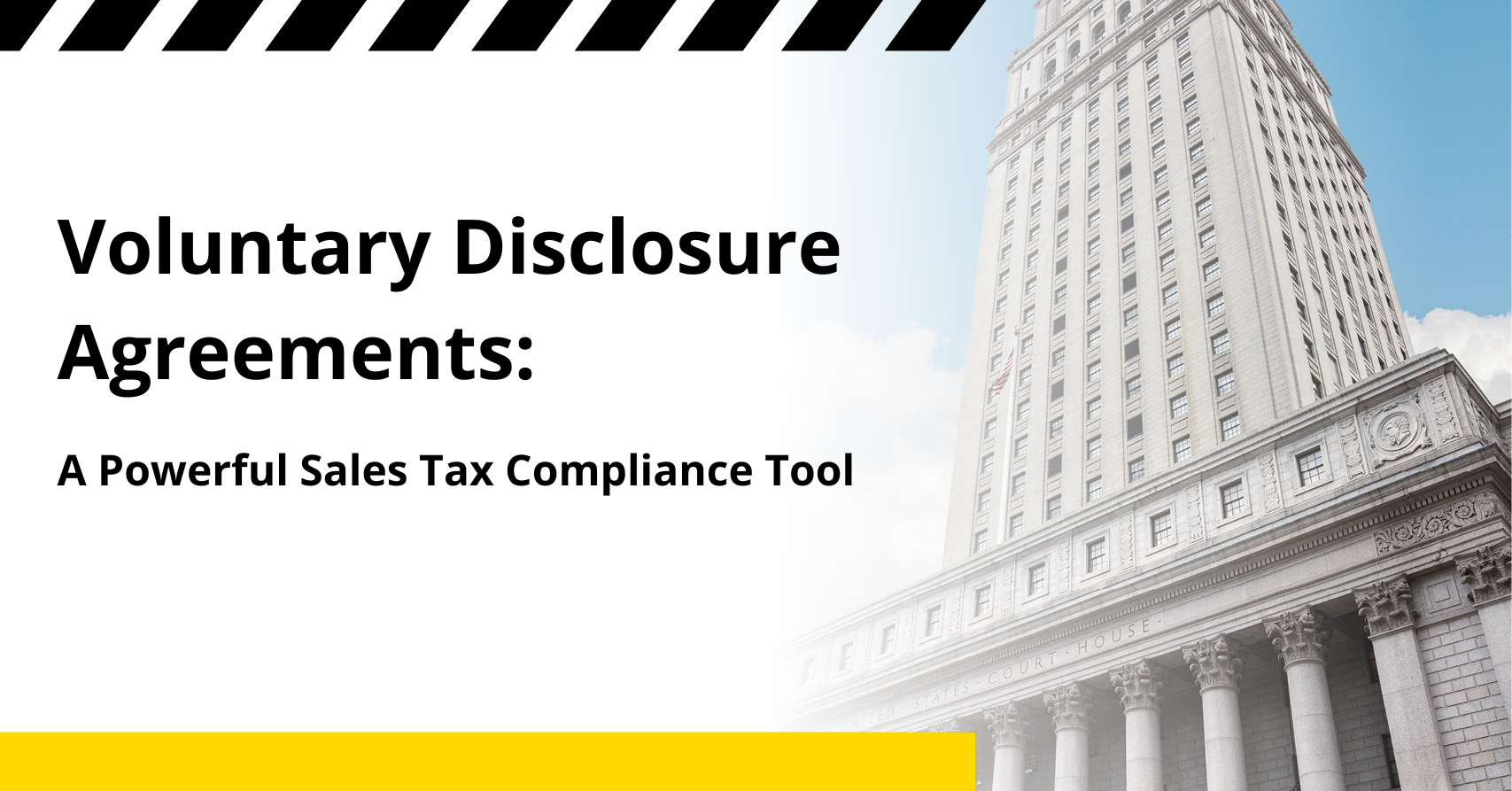Knowing where your business is supposed to collect sales tax is complicated. It became even more complicated after the 2018 South Dakota v. Wayfair decision that allowed states to implement economic nexus. At HOST, we’ve worked with e-commerce businesses for 25 years, and have often helped businesses who realize they should have been collecting sales tax… but weren’t. Sometimes this has gone on for years, subjecting them to potentially huge fines and penalties.
Fortunately, there is one sales tax compliance tool that, if used in time, can help e-commerce retailers get a handle on sales tax and mitigate the worst of those fines and penalties: the Voluntary Disclosure Agreement (VDA).
What is a VDA?
A voluntary disclosure agreement is a useful tool when a business realizes that they have significant sales tax liability in a state. With the agreement, that seller can (generally through an arbitrator, such as a sales tax expert or attorney) anonymously disclose how much sales tax they owe. The state will then generally offer penalty abatement in exchange for the business agreeing to get and stay compliant in the future.
Over the past 25 years at HOST, we have worked with many e-commerce sellers who belatedly realized they owed a significant amount of sales tax. The numbers can sometimes seem overwhelming. But a VDA helps those sellers who have made honest mistakes regarding sales tax compliance to mitigate harm to their businesses.
When should an e-commerce seller consider a VDA?
In general, you should consider a VDA if you have discovered that you have sales tax nexus in a state where you are not registered for a sales tax permit.
The Benefits of VDAs
Sales tax is, by its very nature, uncertain. Many of our clients come to us worried that a big sales tax problem, such as an audit, is looming over the horizon. This is what makes VDAs such a useful tool.
Coming to an agreement with a state gives you peace of mind while also capping penalties for back taxes owed. They also halt interest accrual on unpaid taxes so you can get a fresh start on future compliance.
Are you eligible for a voluntary disclosure agreement?
The main factor involved in a VDA is ensuring that you don’t leave it too late. Businesses that are already under audit are not eligible for voluntary disclosure agreements. That’s why it’s vital to face an impending problem head on rather than wait and hope the state never finds you.
You are also required to determine and disclose the full scope of past sales tax liability. If it is later found that you didn’t do that, the VDA is null and void and you are back on the hook to pay penalties.
And last but not least, a VDA doesn’t make sales tax in that state completely go away. Once you and the state have come to an agreement, you are required to get and stay compliant in that state from that date forward. That means registering for a sales tax permit in the state and collecting and remitting sales tax to that state.
The VDA Process
The VDA process is tricky and every state is different. This is why we recommend working with a sales tax expert if you need a VDA.
Your sales tax expert will help you determine how much past due sales tax you owe and then make an offer to the state. Your business will remain anonymous during this process.
The state then reviews the voluntary disclosure and determines a settlement agreement. Again, this varies by state, but they will generally offer to mitigate at least some penalties in order to get your business compliant with the state. From here, you generally have 90 days to pay back the past due sales tax and any assessed fines.
Key Considerations Before Applying for a VDA
Just like every state has different sales tax rules and laws, they have different VDA processes.
VDAs are not available in all states. And if they are, they may not be generous with terms. You will still likely be required to pay interest on back taxes owed. VDAs are also usually a one-time thing. These are all reasons why it’s important to work with a sales tax expert who understands that state’s requirements and how to get and keep your business sales tax compliant.
To sum it up, VDAs are a useful tool if you discover past sales tax nexus exposure. However, they come with their own pitfalls and require a sales tax expert to ensure you are getting the best protection. That said, they are also much less risky than rolling the dice and hoping a state never realizes that you owe them back taxes.
Think you might need a voluntary disclosure agreement (VDA) with a state? Contact us.
